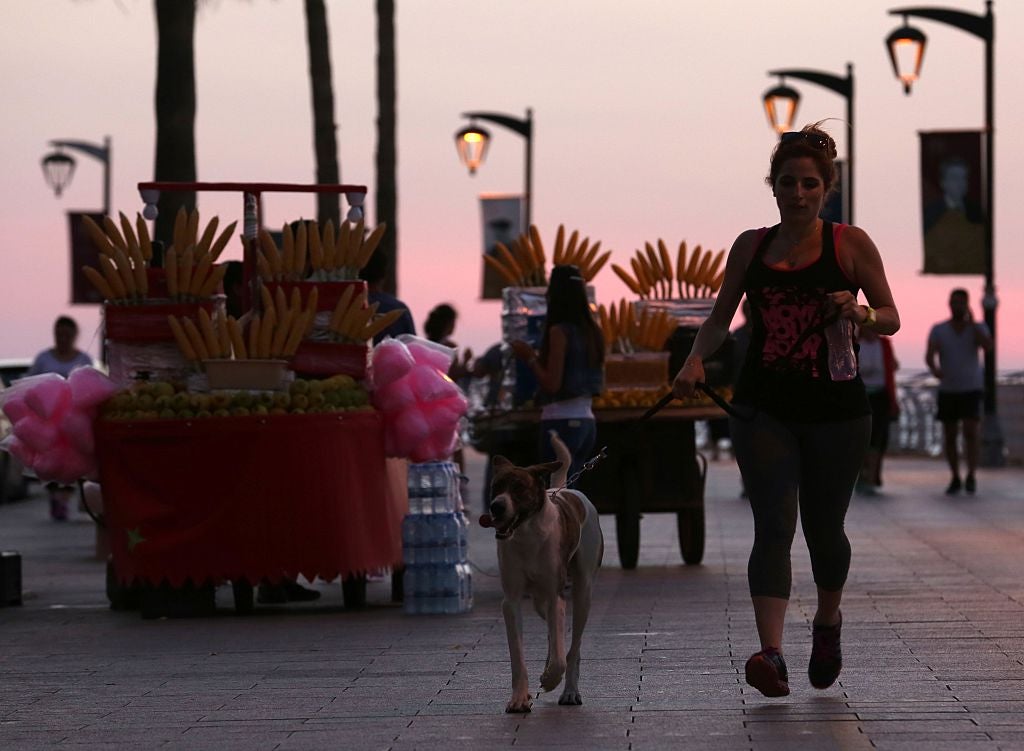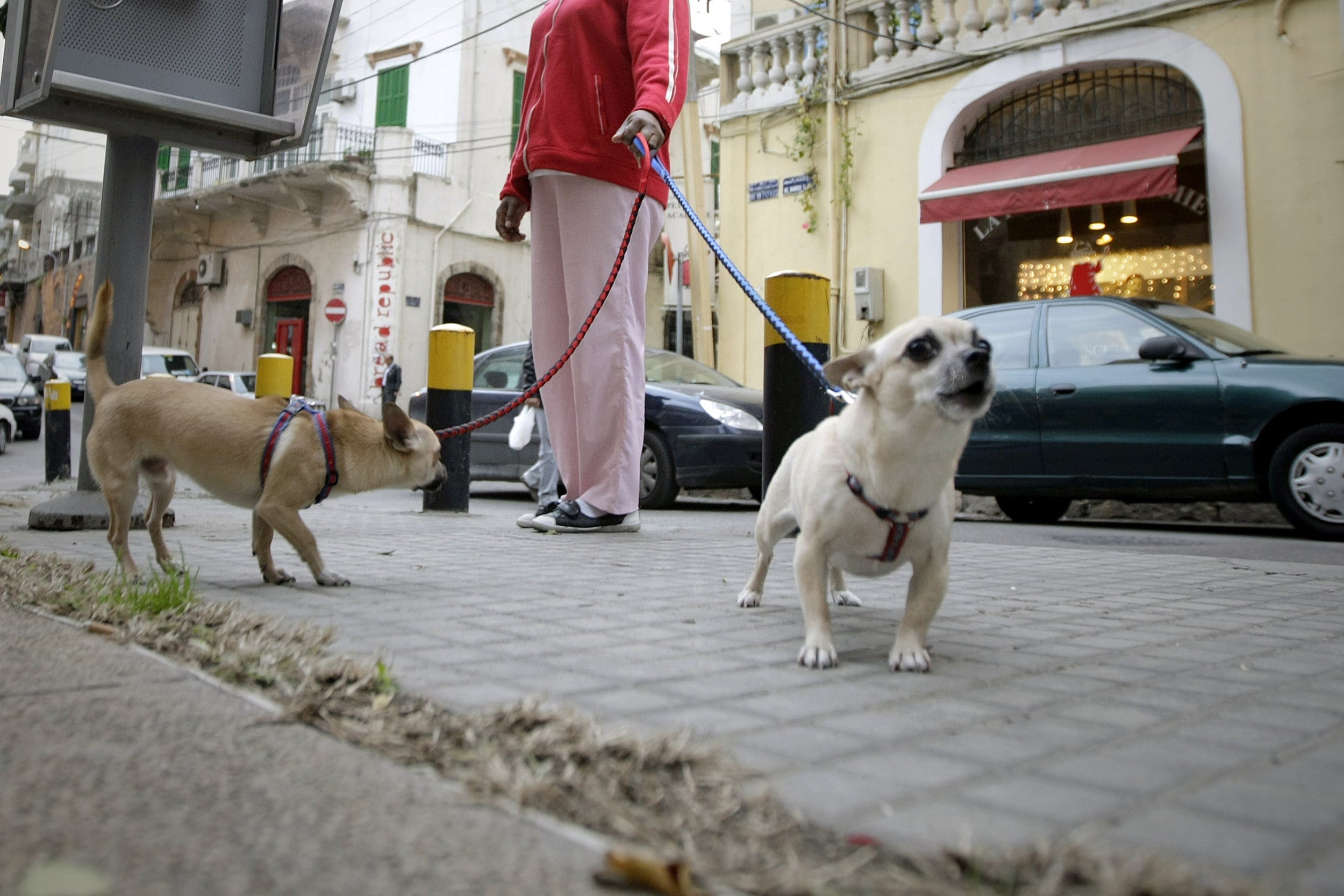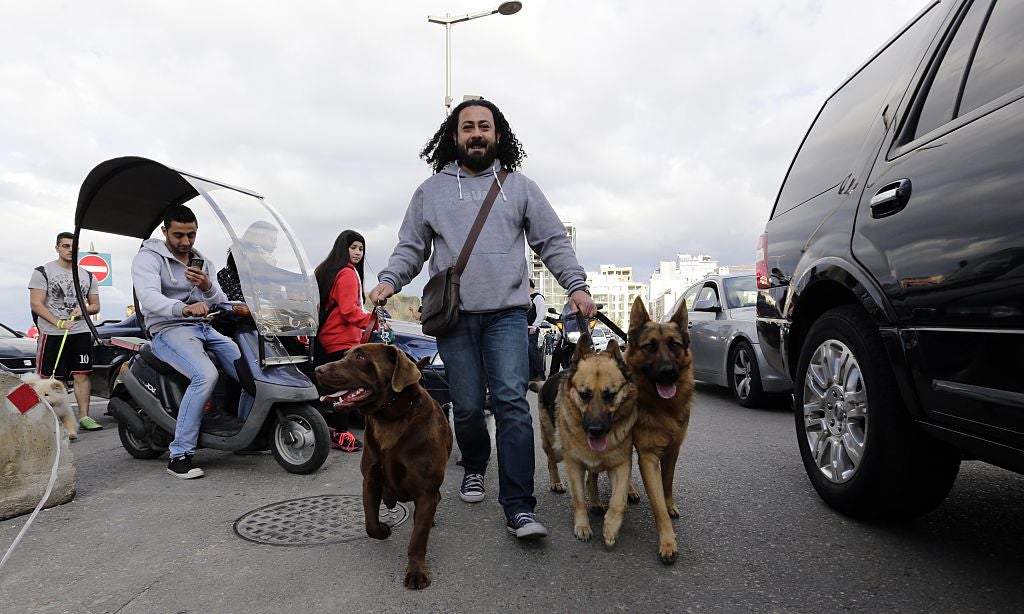Lebanon: How an underdog movement is tackling Beirut's soiled streets
What community advocates shared was a tenuous hope that dog droppings – unlike government corruption or the war in neighbouring Syria – might be a problem small enough to solve

Your support helps us to tell the story
From reproductive rights to climate change to Big Tech, The Independent is on the ground when the story is developing. Whether it's investigating the financials of Elon Musk's pro-Trump PAC or producing our latest documentary, 'The A Word', which shines a light on the American women fighting for reproductive rights, we know how important it is to parse out the facts from the messaging.
At such a critical moment in US history, we need reporters on the ground. Your donation allows us to keep sending journalists to speak to both sides of the story.
The Independent is trusted by Americans across the entire political spectrum. And unlike many other quality news outlets, we choose not to lock Americans out of our reporting and analysis with paywalls. We believe quality journalism should be available to everyone, paid for by those who can afford it.
Your support makes all the difference.On a quiet, expensive Beirut street, the dog walkers begin to appear. It is precisely that moment in a Mediterranean evening when the light turns golden and the bougainvillea blossoms seem to glow from within. The lengthening shadows magnify a series of lumps on the pavement, like cairns marking a mountain trail. On closer inspection, they are hills of poo.
Jad Nawfal, 34, pauses with his German shepherd, Boiko. As the dog sniffs a pile, the human looks at a newish sign that says: “Please! Clean up after your dog.”
“To Lebanese people,” he says, wrinkling his nose, “it’s kind of embarrassing to pick up poop.”
How about picking their way past dog faeces on the streets?
If it is not on their personal property, he says, “They just don’t care.”
That is exactly the problem, says Carole Babikian, part of a small band of Beirutis trying to drag their city into the 20th century world of poop-scooping.
“If you feel you belong to a nation, you will take care of this nation,” Babikian says. “But here everybody has an idea of his own Lebanon.”
Ask anyone here about canine excrement and the conversation moves quickly to concepts of citizenship, nationhood, belonging, Lebanon’s sectarian political system and ultimately the civil war that reshaped the country from 1975-1990.
Civic activists say those years of sectarian violence and lawlessness, and the ensuing mistrust, destroyed Lebanon’s sense of shared public space, whether physical or political.

During the civil war, “people were afraid of the streets and the sidewalks,” says Jad Chaaban, a university professor who is a member of Beirut Madinati – Arabic for “Beirut, My City” – a group that made a stir last year by taking the radical step of running in municipal elections on a platform of improving public services.
After the war, reconstruction was carried out with “almost total disregard” for public streetscapes, he says.
“People don’t feel that they own anything,” he says. “They don’t own the street. They don’t belong. The sidewalk is a very nice metaphor for the Lebanese situation.”
Despite that, or because of it, a loose-knit coalition – an underdog movement, dare we say – has sprung up to battle the problem of soiled streets. It includes just a few people: Babikian and other neighbourhood advocates, animal rights activists, a vet and the politician son of an assassinated president.
What they shared, at first, was a tenuous hope that dog droppings – unlike, say, government corruption or the war in neighbouring Syria – might be a problem small enough to solve. What they found instead was that it contained nearly every classic Lebanese problem.
Lebanon’s weak government has failed to deliver public goods that it should be able to afford, like sewage treatment, clean water, consistent law enforcement or reliable electricity. Clean pavements are not even on the agenda.
So about two years ago, Babikian and several other advocates, all of whom had got used to faeces-free streets while living abroad, took matters into their own hands. Parallel efforts began in the largely Christian east side of Beirut and the largely Muslim west, a divide that itself is a legacy of the war.
On both sides, they hit fierce resistance.
Babikian says officials told her neighbourhood group, Achrafieh 2020, which pushes for pedestrian-friendly streets in east Beirut, that working with it might anger people in the west. That exasperated the activists, who wondered, why not work with both?
A brief collaboration with rubbish collectors died during a contract imbroglio that resulted in mountains of waste nationwide in 2015.
And advocates struggled to enlist foreign domestic workers, often underpaid and overworked, who do much of the dog walking in a city where pets are largely a luxury.
“It was a total fiasco,” says Maher Yehyia, 42, a vet who had started his own campaign in western Beirut. I found his number on a box on a lamppost. It was supposed to contain free plastic gloves for dog walkers, but it was empty.
When Yehyia returned in 2006 from Canada, where he had moved as a child during the war, he set about picking up after his chihuahua.
“People thought I was crazy,” he says.
He did not proselytise much at first. Fouled streets were a bigger issue in the Christian east, since most traditional Muslims do not keep dogs in their homes. Veterinary patients on the west side are 80 per cent cats, he says, while in the east they are 80 per cent dogs.
But with growing secularism and returning expatriates, the number of dogs in his practice tripled, a trend he sees reflected underfoot.

So Yehyia started to clear the “land mines” outside his clinic. Then he hung 300 glove dispensers around town. Fellow vets started calling – not to join him, but to accuse him of self-promotion for printing his clinic’s name and number on the boxes.
A city official arranged a meeting, then cancelled. The gloves vanished; Yehyia saw traders on the seafront using them to hand out roasted corn.
For the vet, the whole episode was a reminder of why there is no law requiring cleaning up after dogs in the first place: the lax enforcement and rampant use of bribes and connections that doomed other recent public-minded laws, like those requiring seat belt use and banning smoking in restaurants.
“The war made it so no one respects the laws,” he says. “If you stop at the red light, they will shout at you and say, ‘Do you think you are in Europe?’”
He has found sympathy in one quarter: Babikian’s group. They added poo to their agenda as they held street fairs promoting walking and biking.
Her group has more political connections, and a bit more traction. It was founded by a member of parliament, Nadim Gemayel, son of the assassinated president.
The neighbourhood group released adverts on social media showing a bearded hipster, first cursing – “I stepped in it” – then holding his head high on a cleaner street.
Recently, Beirut’s city government has posted some signs urging people to scoop the poop. But Babikian has pushed in vain for “a real campaign” – sustained, high-profile, on television.
The most obvious solution – a fine – would be pointless here. Those for smoking and traffic violations are routinely ignored.
Another problem, says Gaby Ferneine, a city council member, is that Beirut has no real city police, only a tiny municipal guards force.
But there is a glimmer of hope in Sioufi, the district where I found Nawfal walking his German shepherd. The next pair to pass are Josine Pacaro, 46, and Bruno, a miniature doberman. Pacaro, a house worker from the Philippines, is wearing a pink uniform and plastic gloves.
Asked if she scoops, she says: “Yes, of course. We are the ones to step in it!”
She became a convert after a single misstep “on the kaka”.
“Enough,” she says. “I pick it up.”
She gazes down a line of dog deposits, of various vintages, leading to one of the city’s few public parks. Flies hover, gleaming in the sunset.
“I try to convince them,” she says. “But, you know – stubborn people!”
© New York Times
Join our commenting forum
Join thought-provoking conversations, follow other Independent readers and see their replies
Comments